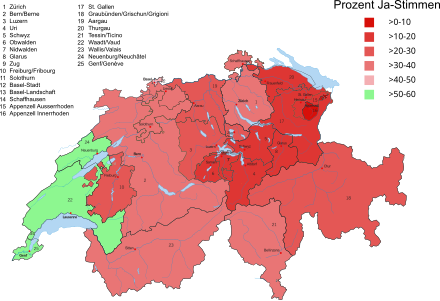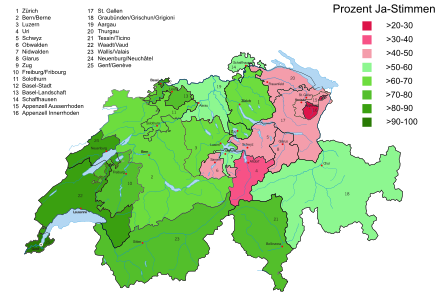Wikimedia CH/50Y Swiss Women's Suffrage
Celebration of 50 Years Swiss Women's Suffrage
In this historical year, Wikimedia CH has decided to celebrate the 50 years women's voting rights in Switzerland, by launching a dedicated program focussing on this important happening. Running such a program is only possible with the strong support of the voluntary community in Switzerland and across the boarders for everyone interested to contribute content on Wikimedia projects. The aim of the program is to partially close the gap around women's biographies and women's political advancements in the last century.
The program encompasses activities organized by the community, Wikimedia CH or initiated by a GLAM institution or like-minded organization, but mostly in collaboration within the parties with the aim of acknowledging the effort of women fighting for their rights. Some events will be organized online or in a hybrid format, as long as this is necessary to be compliant with the requirement of the Swiss confederation during these difficult times. If you are interested to participate in one of our events, please find out more about the planned activities in our events overview page.
During 2021, Wikimedia CH will support upcoming activities initiated by volunteers and / or Swiss cultural institutions, following the same vision. You can find further information on how to participate and contribute in the respective page. If you like to organize an event in collaboration with us, or you require support, please contact us at Wikimedia CH.

Debora Lopomo
GLAM Program & Partnership Manager
(Galleries, Libraries, Archives and Museums)
debora.lopomo![]() wikimedia.ch
wikimedia.ch
A Historical Event
After 100 years of feminist struggle and continous massive protests from different women's associations finally on 7 February 1971 Swiss women won the right to vote and stand for election. The vote led to the amendment Article 74 of the Federal Constitution of 29 May 1874.
Thanks to this victory, Swiss women could now be elected to the Federal Assembly. At the start of the winter session of 1971, the first female members of the parliament took their seats. Each new female member was welcomed with a rose.
Compared to the neighboring countries, Swiss women were granted the right to vote and stand for election only 53 years after Germany, 52 after Austria, 27 after France and 26 after Italy. Looking far back in the history of Switzerland, it has to be considered that the first attempt was in 1868, when the women in Zurich demanded the right to vote as the cantonal constitution was revised. More than two decades later, in 1893 the Swiss Federation of Women Workers made an official demand to have the right to vote and stand for election without success. In 1909 the Swiss Association for Women's Suffrage (ASSF) was founded to further fight for women's suffrage in Switzerland and 1918 two motions were submitted to the National Council demanding women's suffrage. The Federal Council ignored both motions.
- Voting results 1959 vs. 1971
-
Voting results from 1959
-
Voting results from 1971
There were more failures during the inter-war period such as the petition to the Federal Chancellery submitted by the ASSF in 1929. Moreover, during the Cold War the Swiss government wanted to introduce the obligation for women to engage in civil protection service. Imposing new obligations on women while they still did not have the right to vote lead to demonstrations from all sides such as ASFF, the Swiss Catholic Women's League and the Alliance of Swiss Women's Societies. Public discussion and controversy pushed the Federal Council to submit a bill on women's suffrage in 1957, which was approved by both parliamentary chambers in 1958. Nevertheless, male voters refused women the right to vote by 66.9% on 1 February 1959.
In 1968, the Federal Council considered signing the European Convention on Human Rights, without accepting the clause concerning women's political rights. Due to massive protests from women’s associations, the Swiss government accepted to organize a new vote on women’s suffrage finally with success in 1971.
Source: parlament.ch



